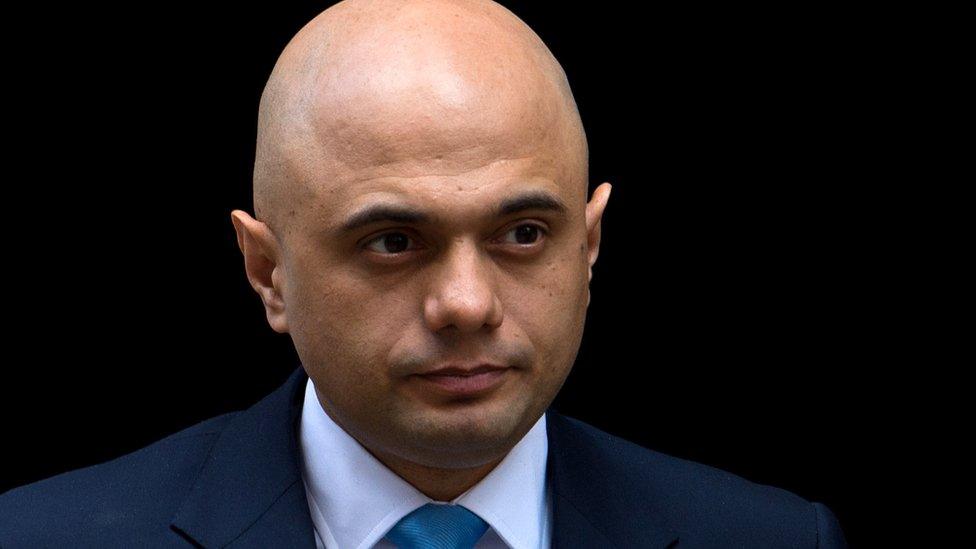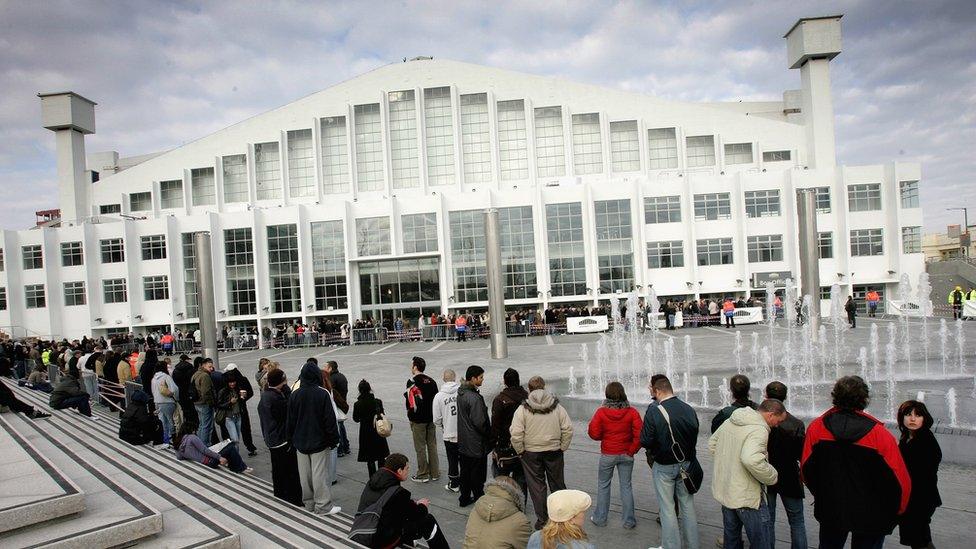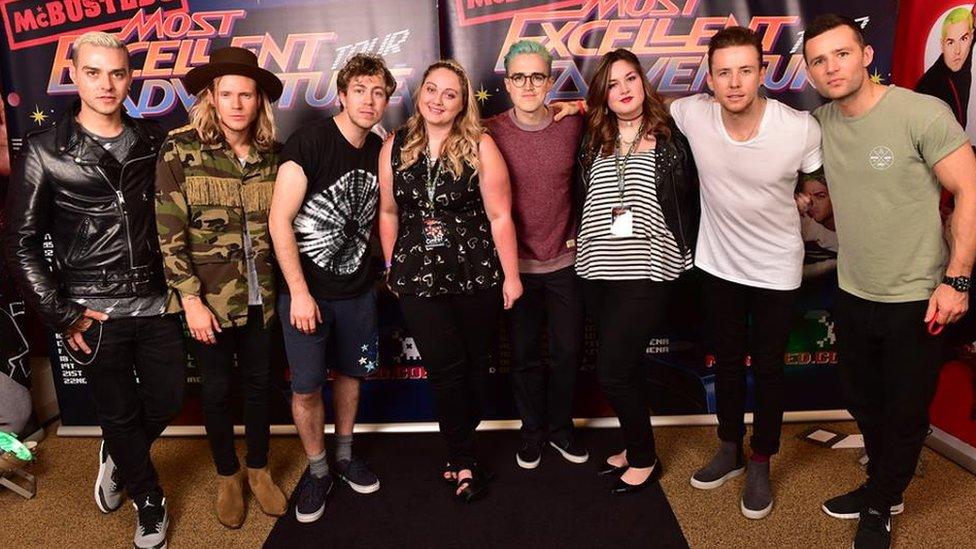The new age of the ticket tout
- Published
The manager of the Arctic Monkeys says the ticket market is being distorted
A government-commissioned report on the problem of ticket touts is being published this week. Andrew Hosken examines how the internet age has made secondary ticket sales big business.
No sporting event or music concert would feel complete without the ticket tout. Buying low and selling high has always been the business model of the tout.
But touting now is no longer the preserve of the Arthur Daleys or "Del Boy" Trotters familiar to music and sporting fans.
The internet has helped to turn it into a business worth an estimated £1.4 billion a year.
Tickets are now re-sold through a small number of giant websites that have come in for intense criticism. The companies running the sites have been accused of encouraging ticket touts and ripping off fans.
American concern
The BBC has learned that the New York Attorney General Office has criticised the business practices of at least two giant ticketing giants that operate in the UK, Stubhub and Ticketmaster.
Stubhub says it gives fans a safe platform on which to exchange tickets and that 95% of its sellers are not touts, passing on only a handful of tickets each year.
Some industry insiders and experts say that the so-called "secondary ticketing" business is jeopardising support for music and sports events and damaging the music and sports industries.

Touts are pricing a "whole stratum of society" out of watching football matches, warns expert Reg Walker
Reg Walker, the operations director of the Iridium Consultancy, one of the country's leading experts on touts and ticketing irregularity, told the BBC that even the very cheapest seats were being harvested online.
"The problem is that there is a danger, particularly with sport, that we are pricing out a whole stratum of society," said Mr Walker.
"Those who are not particularly affluent from seeing sporting events, getting involved in sporting events, and that may well discourage people from becoming the sportsmen and the sportswomen of the future."
'Bots'
Mr Walker said that as many as half the tickets allocated for major music and sports events could be acquired by touts and then re-sold through the main ticketing agencies at prices much higher than the face value.
"The majority of the people in the UK cannot afford these prices," he said. "And they are being priced out by greedy individuals who frequently avoid paying tax and VAT - harvesting tickets and artificially upping the price. And that needs investigating."

Sajid Javid ordered the review of protection for ticket sales
Last October, Business Secretary Sajid Javid commissioned a review of the consumer protection measures in place for online ticket sales.
Chaired by Professor Michael Waterson, Professor of economics at the University of Warwick, the review team reports to the government this week.
A separate inquiry into the major ticket re-sellers was conducted recently by the New York Attorney General's Office.
That report said that illegal software called "Bots" was used by online touts not only to acquire tickets but also to prevent fans from buying them.
Bots acquired an estimated 60 per cent for all available tickets this way for a number of important gigs, the report said. Ticket resale websites were criticised for not doing enough to deter touts.
New laws ineffective?
In early May, the Attorney General Erich T. Schneiderman wrote to secondary ticketers such as Stubhub and Ticketmaster suggesting that touts using their websites were probably in breach of consumer protection laws.
The defence of secondary ticket companies has been their insistence that they do not trade in tickets but simply facilitate those people who wish to do so.

Recent legislation has not proved effective at policing ticket sales, says Which?
The consumer rights campaigner Which? has also investigated the UK's ticket resale market.
Pete Moorey, head of campaign for Which? said new laws introduced only last year were proving ineffective.
The legislation set out clear rules for secondary tickets, saying that resold tickets had to show the face value of the ticket, the number of the seat and row, as well as any restrictions on that ticket.
"These pieces of information simply aren't being shown by the secondary ticketing sites, which raises concern about people out there buying tickets that either are not going to be what they think they're buying or actually turning up to an event and being turned away," said Mr Moorey.
'Prices can fall'
A spokesperson for Stubhub, the ticket re-seller owned by eBay, said: "At Stubhub, we offer ticketing choice so that fans can enjoy live events.
"We give fans access to tickets by providing a safe and secure platform for fans to exchange tickets. We do not set prices for the tickets listed on the website, as this is done through our sellers, 95% of which are consumers who only sell a handful of tickets per year."
The spokesperson added that Stubhub acted as a distribution channel for event organisers to sell primary tickets at face value.
"Our experience in the UK has shown that ticket prices can actually come down," added the spokesperson. "In fact, since we launched in the UK in 2012, the average ticket price has dropped nearly 25%."
Ticketmaster said it was waiting for the Waterson review to be published before commenting further.
- Published19 November 2015
